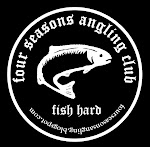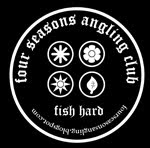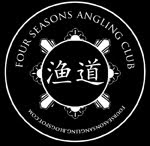


My friend & brother Jonathan in Seoul sent some photos of his recent catch in the Han River in Seoul. He caught a couple of nice sized herring (Ilisha elongata). [family: Pristigasteridae (Pristigasterids); Order: Clupeiformes (herrings); class: Actinopterygii (ray-finned fishes)]. Although not a prized fish in terms of species, it is a good fish to catch within such close proximity to the city (he caught it at the riverbanks 15min from his home). He used small 미꾸라지 for bait. Nice catch Jonathan!



The Han River in South Korea is the confluence of the Namhan River (South Han River), which originates in Mount Daedeok, and the Bukhan River (North Han River), which originates on the slopes of Mount Geumgang in North Korea. The River flows through Seoul and then merges with the Imjin River shortly before it flows into the Yellow Sea.
The total length of the Han River is 514 km. Although it is not a long river, the lower Han is remarkably broad for such a relatively short river. Within Seoul city limits, the river is more than 1 km wide. Prior to the construction of a number of major dams, the river was known for its huge coefficient of river regime (ratio between the maximum and minimum amount of flow) of 1:390. (For comparison, The Thames and the Rhine have coefficients of 1:8 and 1:18, respectively.)
The Han River and its surrounding area played an important role in Korean history. The Three Kingdoms of Korea strove to take control of this land, where the river was used as a trade route to China (via the Yellow Sea). However, the river is no longer actively used for navigation, because its estuary is located at the borders of the two Koreas, barred for entrance by any civilian.
The Namhan meaning South Han, Gang meaning river is sometimes, but not always, referred to as the "Han" in South Korea. The term "South Han" is understood irrespective of which side of the border one stands.
Even though "Namhan" and "Bukhan" are homophones with the acronyms Namhan (South Korea) and Bukhan (North Korea), used commonly in South Korea, this is a mere coincidence. The hanja for the Han River is not "韓" ("Korea") but "漢" (the Chinese Han dynasty or "China" in general).






No comments:
Post a Comment